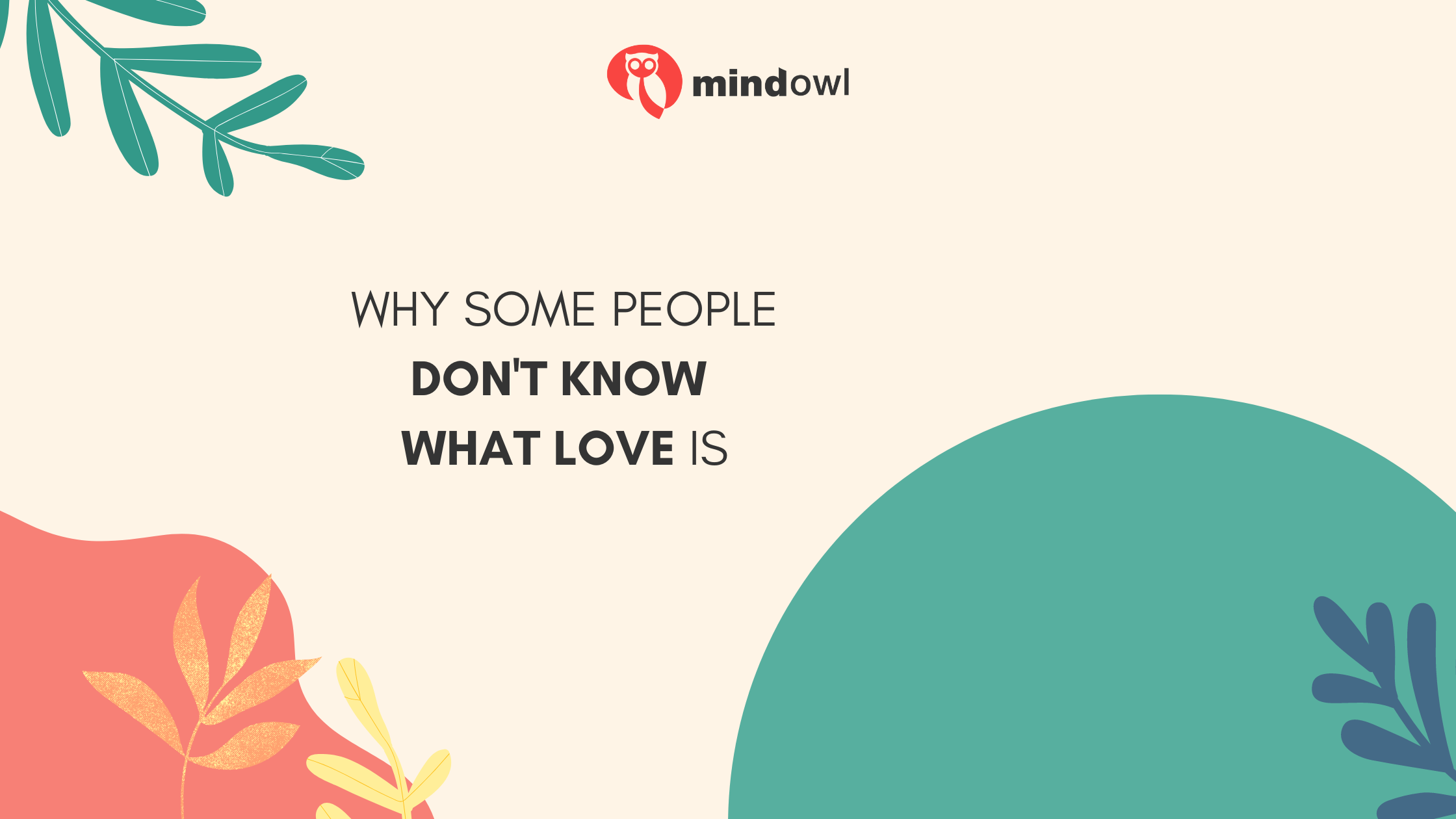Understanding the authentic meaning of love often poses a challenge for many. People globally wrestle with questions about the genuineness of their feelings, the sincerity of their love expressions, or even their ability to love.
One significant fact about this subject is that emotions such as fear and insecurity often inhibit people from fully experiencing love. Apprehensions about emotional wounds or the feeling of needing to conform to specific standards to receive love often create confusion and solitude.
Our article is aimed at dissolving misunderstandings by elaborating on why individuals may grapple with the understanding of different forms of love – romantic, friendly, affectionate, and self-love.
From social conditioning and psychological aspects to misconceptions about deeply caring for another person, we will analyse multiple reasons behind these complications.
Misconceptions About Love
Many people confuse obsession with love, leading to misconceptions about what genuine love entails. These misconceptions can hinder the ability to develop healthy and meaningful relationships.
Obsession vs. Love
Obsession in relationships often leads to stress and dependence. This happens because one person might feel they can’t live without the other. It’s not healthy. True love, on the other hand, feels easy.
It doesn’t make you stressed or worried about losing someone all the time. People who love each other put in effort effortlessly. They don’t constantly fear loss.
Media shows us pictures of perfect romance that aren’t real. These fairy-tale ideas make people think love should be like a movie — always exciting and dramatic. That’s not true for real love though.
Real love has quiet days and mutual respect between two people who genuinely care for each other’s happiness without wanting anything back.
Possession and Control
Many people mistake wanting to possess someone for love. They think that if they can control the person they’re with, it proves their love is real. This belief leads them to set conditions like, “If you loved me, you would do what I say.” But true love doesn’t work this way.
It isn’t about controlling or changing someone to fit an ideal image. Instead, love means accepting and caring for someone as they are.
Often, efforts to possess or control another stem from anxiety rather than affection. Such actions show a lack of understanding about what it means to truly care for someone else’s well-being.
Genuine love involves choosing to commit out of mutual respect and kindness, not because one feels compelled by fear or the need to dominate. Love should make all involved feel valued and free, not trapped by expectations or demands for validation in return.

The Role of Social Conditioning
Social conditioning shapes our understanding of love through media influence and cultural expectations. Influential figures such as parents, peers, and societal norms also play a significant role in shaping our perception of romantic love.
Media Influence
Films and TV shows often paint a picture of love that’s far from reality. They show us grand gestures and passionate moments as signs of true love. But these scenes can make us believe in a version of love that hardly exists outside the screen.
This shapes how we see relationships and what we expect from them.
Unrealistic portrayals of love in media contribute to misunderstandings about healthy relationships.
Many people grow up thinking they need to find a “perfect person” to experience real love, thanks to stories told by the media. These tales ignore the ups and downs that come with every relationship.
Instead, they focus on an idealised form of romance, setting up expectations few can meet. This leads some individuals down a path where they struggle to understand or even recognise genuine affection when it doesn’t match the fantasy sold by films, books, and songs.
Cultural Expectations
Cultural expectations shape how we view love and relationships from a young age. Media shows us stories that mix up romance with possession, making some think controlling behaviour means love.
This confuses people about what healthy relationships look like. Children absorb these ideas around the age of ten, learning gender roles and societal norms without questioning their truth.
They learn to hide their feelings to fit in, which stops them from showing who they really are.
Formal taming in society comes from fear-driven conformity. Historical events like the Holocaust show us the dangers of this kind of thinking. People often give up on living authentically to avoid social rejection.
Yet, finding someone who truly understands and accepts you requires breaking free from these pressures. It’s not easy but moving past cultural expectations can lead to more honest and fulfilling connections with others.

Psychological Factors
Attachment styles, cultivated in early childhood, notably influence an individual’s capacity to form and sustain healthy relationships in adulthood. Psychological factors have a significant impact on how individuals perceive and experience love. Emotional intelligence significantly contributes to recognising, comprehending, and effectively managing emotions within oneself and others.
Attachment StylesAttachment theory shows us that the way we connect with our caregivers in childhood sets the stage for how we manage relationships later. Secure attachment means one feels confident and self-assured in love, building on a foundation of strong self-esteem, resilience, and solid social skills.
These people are often capable of deep connections because they learnt early to trust those close to them. They know how to love someone because their own experiences have been positive.
People with anxious attachment feel an intense fear of being left alone. Their minds always look out for signs that someone might leave them, making it hard for them to fully relax in a relationship.
On the other hand, individuals with avoidant attachment keep their distance from getting too emotionally involved. They push away closeness because it feels safer that way. Then there’s disorganised attachment, where confusion reigns supreme – these folks want comfort but distrust it at the same time.
Each style affects not only how individuals view love but also their ability to express and accept it.
Understanding your attachment pattern can unlock keys to handling relationships more effectively.
Emotional Intelligence
Emotional intelligence is profoundly instrumental in comprehending and managing emotions, belonging to oneself and others. It is composed of four principal elements: perception of emotions, accurate expression, understanding of emotional contexts, and effective regulation of emotions.
Individuals possessing enhanced emotional intelligence have the capability of managing stress excellently and confronting life’s obstacles with tenacity. They usually find establishing strong bonds with others relatively easy as they possess the skills to convey their emotions understandably and relate to the experiences of others.
A range of tools evaluates this sort of intelligence in multiple ways. Some emphasise on an individual’s proficiency in resolving emotionally related issues (ability-based measures), while some inquire about people’s behaviour when they are in emotionally heightened scenarios (trait-based measures).
Also available are combined methods examining traits, skills, and abilities collectively, which are particularly beneficial in boosting job performance. It extends beyond merely understanding the concept of love or possessing the ability to love; it stresses empathy, clear exchange of ideas, and vulnerability without the apprehension of judgment or failure – elements that form the foundation for any triumphant relationship or camaraderie.
Conclusion
Understanding why some people don’t grasp the essence of love is no simple matter. Many factors, from deep-rooted emotional barriers to societal pressures, play a role. Learning about these influences sheds light on how complex human emotions are.
Acknowledging these challenges is the first step towards empathy and support for those who struggle with love. Remember, recognising and admitting to these struggles can pave the way for growth and deeper connections in our lives.
FAQs
1. Why do some people not understand what love is?
Some individuals may struggle to comprehend the concept of love due to various factors, such as past relationships, childhood experiences or mental disorders. They might have never experienced the emotion in a way that they can identify.
2. What could be the reasons someone is incapable of feeling love?
Psychologists suggest that certain emotional expressions or behaviours like resentment or an excessive need for affirmation could indicate an incapability to fully love someone. In many cases, this stems from past relationship traumas or negative childhood experiences.
3. How do different people define love?
Love’s definition varies among individuals based on their personal experiences and emotions like desire, belongingness and sympathy. Some might associate it with romance while others see it as deep friendship or familial ties.
4. Can lack of understanding about love affect one’s ability to form relationships?
Yes, if someone doesn’t know what love feels like, they may struggle to form meaningful connections with others as they can’t explain or recognise when they fall in love with someone else.
5. Is there a difference between lust and genuine romantic feelings?
Lust primarily involves physical attraction whereas genuine romantic feelings involve deeper emotions such as cherishing the other person and wanting them for more than just their appearance.
6. Can you learn how to experience and express genuine affection if you’ve struggled before?
It’s possible but it requires conscious effort to overcome barriers from past experiences by prioritising communication within a relationship and learning how these emotions manifest themselves differently in everyone.
MindOwl Founder – My own struggles in life have led me to this path of understanding the human condition. I graduated with a bachelor’s degree in philosophy before completing a master’s degree in psychology at Regent’s University London. I then completed a postgraduate diploma in philosophical counselling before being trained in ACT (Acceptance and commitment therapy).
I’ve spent the last eight years studying the encounter of meditative practices with modern psychology.

